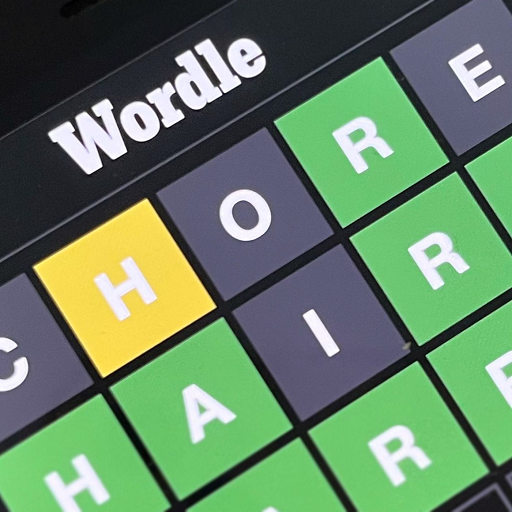Wordle has taken the world by storm, becoming a daily ritual for millions of people around the globe. It’s a deceptively simple word puzzle that challenges players to guess a five-letter word in six attempts. However, while it may appear straightforward at first, mastering Wordle requires strategy, logic, and a little bit of luck. Whether you’re a newcomer to the game or someone looking to step up your Wordle skills, here are some tips and strategies to help you become a Wordle master.
1. Start with a Strong First Word
The key to success in Wordle is maximizing the information you gain with each guess. The first word you choose can set the tone for the rest of the game. You want to pick a word that contains a mix of common vowels and consonants. This will give you a better chance of revealing important letters early on.
Words like "CRANE", "SLATE", or "AUDIO" are popular starting choices because they cover multiple common vowels (A, E, I, O, U) and frequent consonants (R, N, S, T, L). These words help identify or eliminate vowels and consonants in one go, which is crucial for narrowing down your options.
2. Pay Attention to Letter Placement
Once you make your first guess, you’ll start receiving color-coded feedback:
- Green means the letter is in the correct spot.
- Yellow means the letter is in the word but not in the correct spot.
- Gray means the letter is not in the word at all.
Use this feedback strategically. If you have a letter in the correct position (green), try to keep it in that spot for subsequent guesses. If you have a yellow letter, move it around in future guesses. Always remember that letters highlighted in gray should be avoided in subsequent guesses entirely.
3. Focus on Common Letter Combinations
Certain letter combinations appear more frequently than others in the English language. For instance, "TH", "ER", and "SH" are common pairs in many words. If you're stuck on a guess, consider common digraphs (pairs of letters) and try using them strategically to unlock more information.
Likewise, try to include the most frequent letters in the English language in your guesses. Letters such as E, T, A, O, and I are extremely common and should be prioritized in your guesses.
4. Use Vowels Wisely
Vowels are essential to cracking the code. After your first guess, you'll usually want to find out which vowels are in the word. Once you've ruled out one or two vowels, focus on incorporating the remaining vowels in your next guesses.
Some players suggest using words like "OUIJA" or "ADIEU" to test multiple vowels at once. This tactic can be helpful for identifying which vowels are in the word without guessing random combinations.
5. Think About Word Patterns
As you progress, you'll need to think beyond just individual letters. Certain letter patterns are more likely to appear together than others. For instance, you might guess words like "PLANT", "MAYBE", or "CHART", as these are common word patterns in the English language.
If you're down to only a few remaining letters, think about the likelihood of certain letter combinations forming a plausible word. A little knowledge of common English prefixes and suffixes (like "PRE-", "-ING", or "-TION") can go a long way in solving tricky puzzles.
6. Don’t Be Afraid to Eliminate Options
Wordle isn't just about finding the right word; it's also about eliminating possibilities. If you're unsure about a word, don't hesitate to try a guess that helps rule out as many options as possible. This can give you crucial information about which letters are definitively not in the word, even if the word itself isn’t correct.
For example, if you're stuck between two potential words, consider guessing a word that includes the letters you're unsure about. This may help you confirm whether a letter is in the word, whether it's in the correct spot, or whether it’s eliminated entirely.
7. Use Wordle Solver Tools Sparingly
While some Wordle enthusiasts turn to solvers or dictionaries to help with their guesses, it’s best to rely on these tools sparingly. Wordle is as much about developing your intuition and problem-solving skills as it is about simply guessing the right word. However, when you’re really stuck, a quick check on word lists or solvers can help give you a fresh perspective without giving away too much.
8. Practice Regularly
The more you play, the better you’ll get. Wordle is a game of pattern recognition, memory, and deductive reasoning. By practicing regularly, you'll get faster and more accurate with your guesses, and you'll start to develop a natural sense of which words are most likely to appear.
Additionally, tracking your performance over time can give you valuable insights into your strengths and areas for improvement. Some players even record their streaks and challenge themselves to solve each puzzle in as few guesses as possible.
9. Stay Calm and Patient
Wordle can sometimes be tricky, and it's easy to feel frustrated when you’re stuck. However, it's important to stay calm and take your time. With only six guesses, each one counts. Don't rush to make a guess without considering all the possibilities. A clear mind and strategic thinking will lead to a higher success rate.
Conclusion
Becoming a master of Wordle requires a blend of strategy, deduction, and practice. By starting with a solid first guess, leveraging letter combinations, and thinking logically about word patterns, you'll improve your chances of solving the puzzle in fewer attempts. Remember to stay patient, keep practicing, and, most importantly, enjoy the challenge! Whether you’re playing for fun or aiming for the perfect streak, mastering Wordle is all about sharpening your skills and enjoying the process of solving each unique puzzle.
Happy guessing!

















